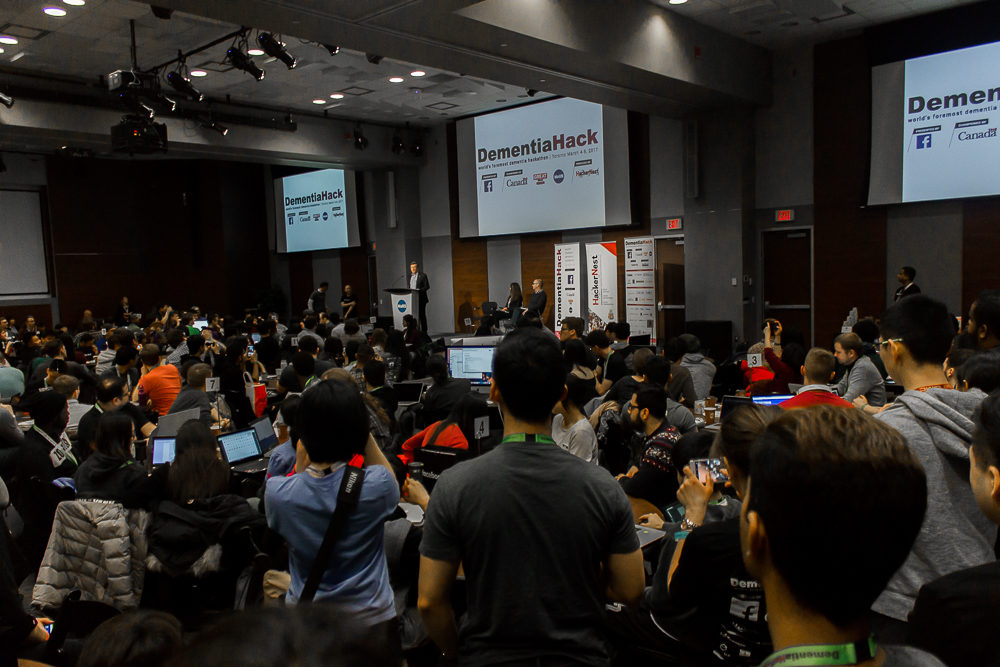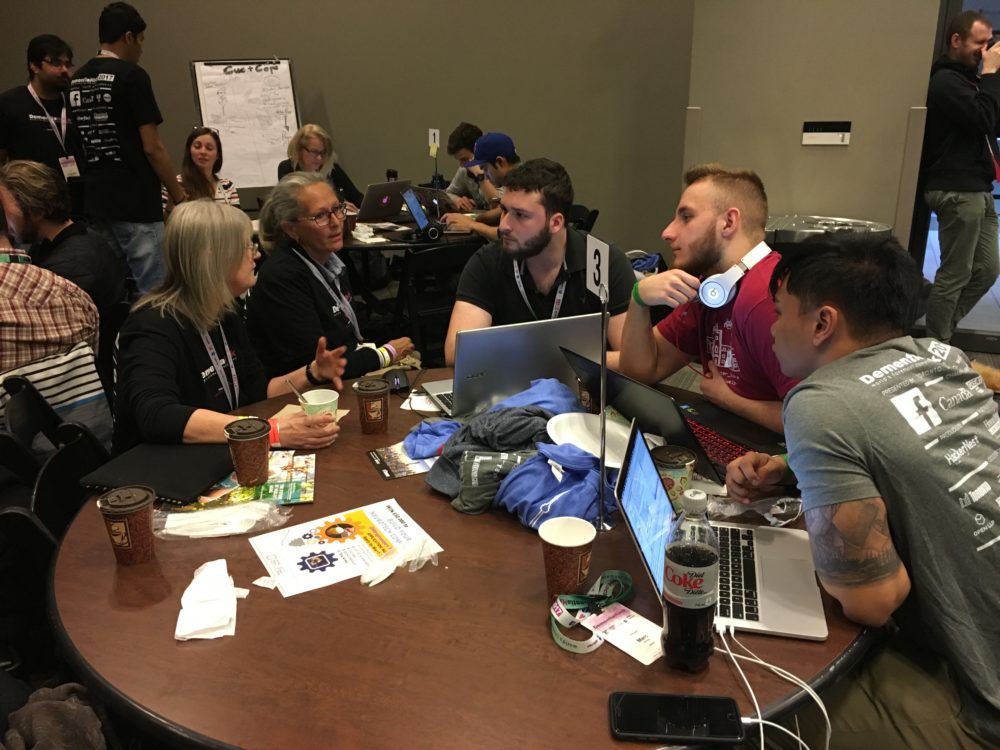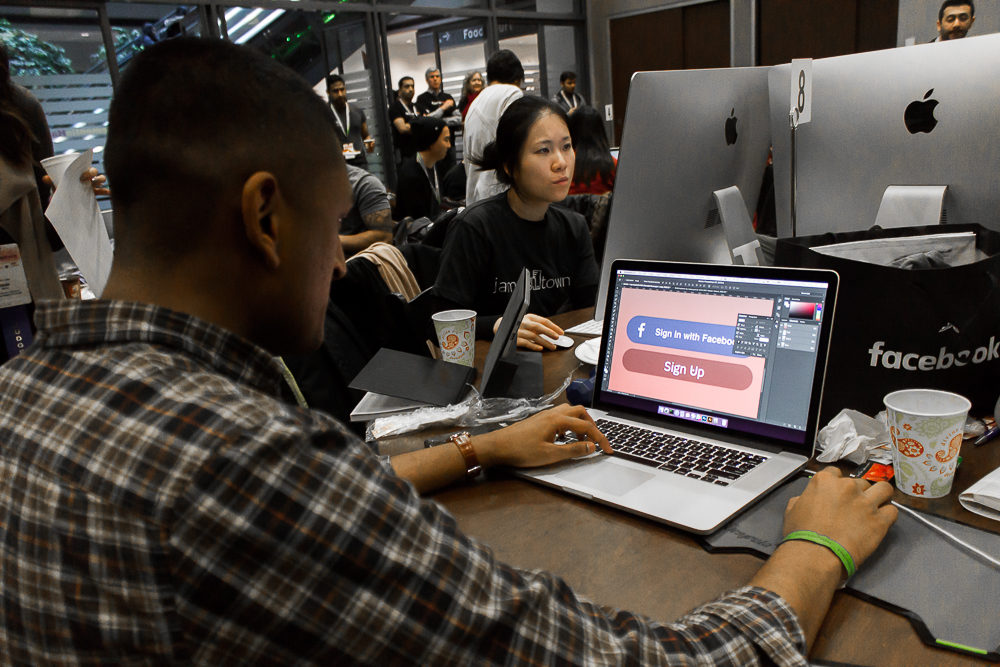
DementiaHack 2017: Making a difference with technology
On March 4th, the doors opened bright and early at MaRs Discovery District for DementiaHack 2017. Throughout the morning, registrants trickled in, setting up their computers and discussing their plans for the upcoming 36 hour-long event. An annual event hosted by Hackernest, Dementia Hack is a competition to create innovative technology to help people with dementia, Alzheimer’s disease and other neuro-degenerative diseases. With over 300 developers gathered together to compete, the room was buzzing with eager participants, discussing and preparing their projects.
Opening remarks were led by Jordan Banks (Facebook Canada) followed by Mayor John Tory, Gerry Gallagher (Public Health Agency of Canada) and Kevin McGurgin (Dementia Hack). Each speaker noted how inspiring it was to see so many young and bright individuals working together to help people with dementia and their caregivers. The winners of the competition would receive a cash prize of $100,000 to develop their technology, but it wouldn’t just be them who won. Today, 564,000 Canadians are living with dementia, and even more people worldwide. With the help of the hard work of the developers at this event, many more resources and tools would be developed that could make a huge impact on the lives of people with dementia.

At 10:30 am, the competition began, and each team started working on their projects. Around the room, were mentors from various backgrounds of expertise in the fields of dementia, health services and research. Team members approached mentors throughout the day to ask for their expert opinions on the design of their projects. Amongst the group of mentors, were Phyllis Fehr and Agnes Houston, who brought vital perspectives to each group. Phyllis and Agnes are both diagnosed with dementia and are prominent advocates for people with dementia and their caregivers.


The next day, the judges evaluated each project to determine who would take home the grand prize for the competition. One of the judges, Lisa Salapatek (Chief Program and Public Policy Officer at the Alzheimer Society of Ontario), spoke about the event and projects submitted:
“I had the honour of being a mentor and judge for the Family Caregiver Challenge set. It turned out to be the most popular category with 20 teams competing, and their solutions and presentations were nothing short of amazing, ranging from in-home artificial intelligence and sensor systems to reduce safety concerns, to virtual scrapbooks and storytelling tools, to uber-inspired apps to help families access the support they need on demand. There were long debates as the judges for each challenge set came together to come to come to a consensus on which teams would move on to the finals.”
After the judges had all met, the grand-prize winner of the competition was announced: Team Momentum, for their application, MemoApp. The application works by passively collecting and analyzing data about the person with dementia through natural voice recording, to help them and their caregiver better track the progression of their dementia, and to gather data for researchers to better understand the progression of dementia. The runner-ups in the competition were the applications: Bright Guide, Rescue and ConnectDem.
We look forward to seeing how these incredible applications will develop and what new and innovative ideas will be brought to next year’s Dementia Hack!